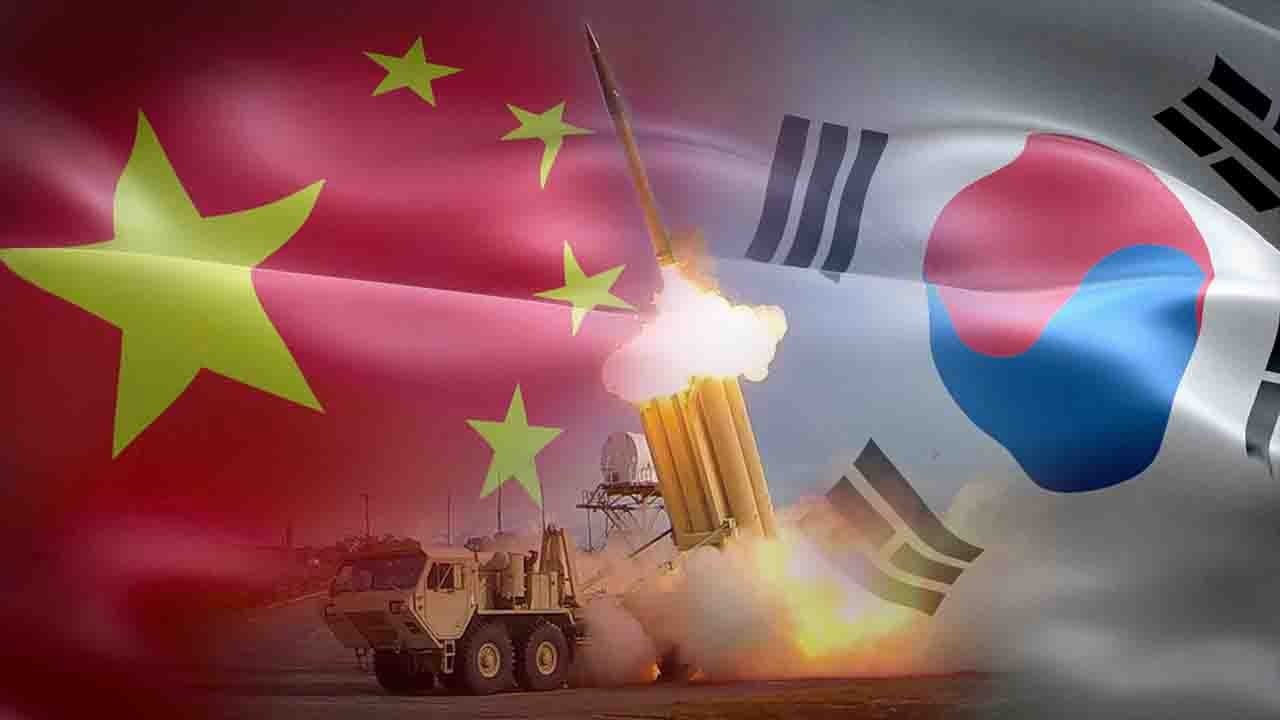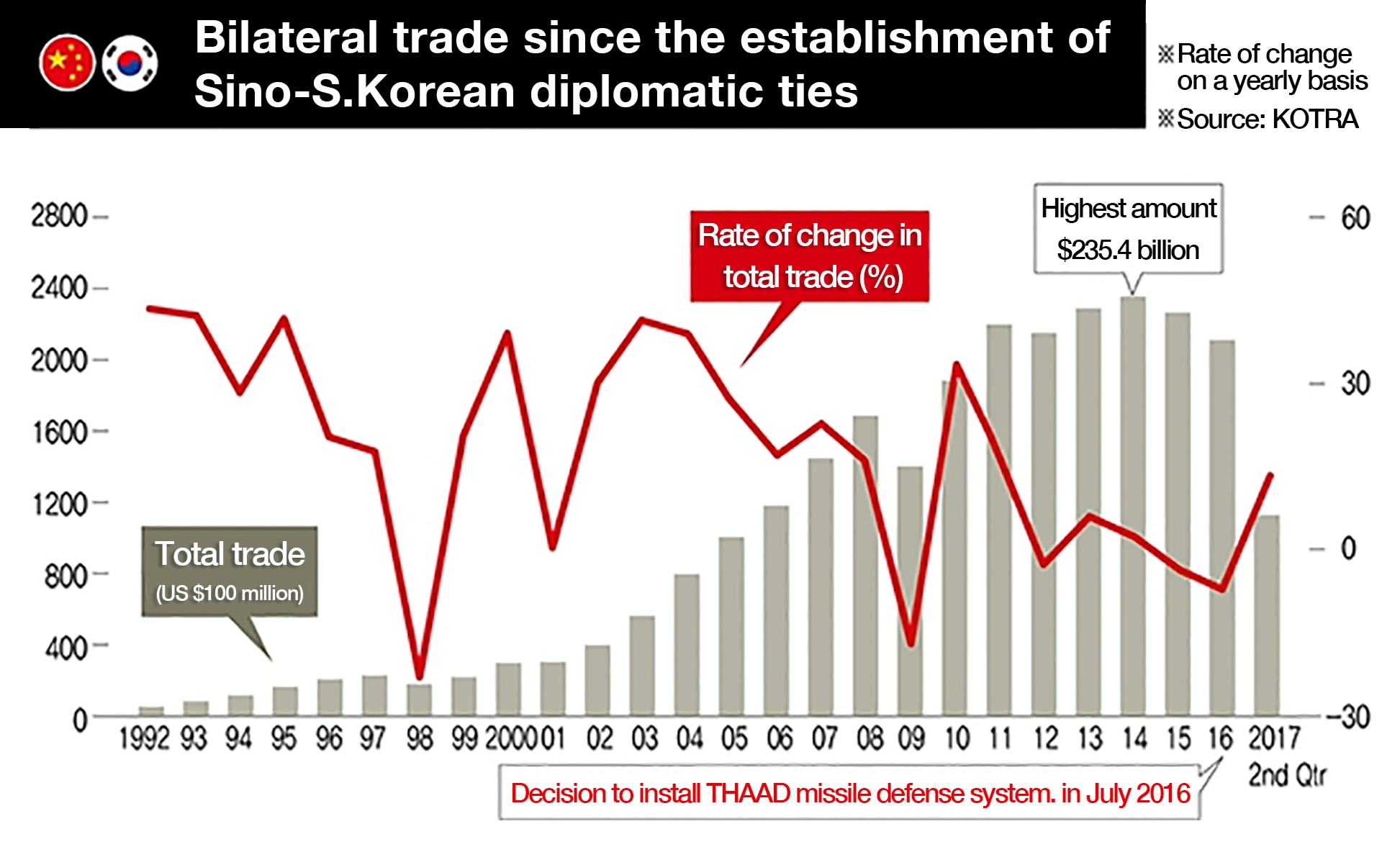Thursday marks the 25th anniversary of the establishment of diplomatic ties between China and South Korea.
Bilateral relations have witnessed sound development in the past 24 years, but Seoul's decision, pushed by the US, to deploy the Terminal High Altitude Area Defense (THAAD) system in its territory last year has put bilateral relations to the test. Can Beijing-Seoul ties return to a healthy track of development?
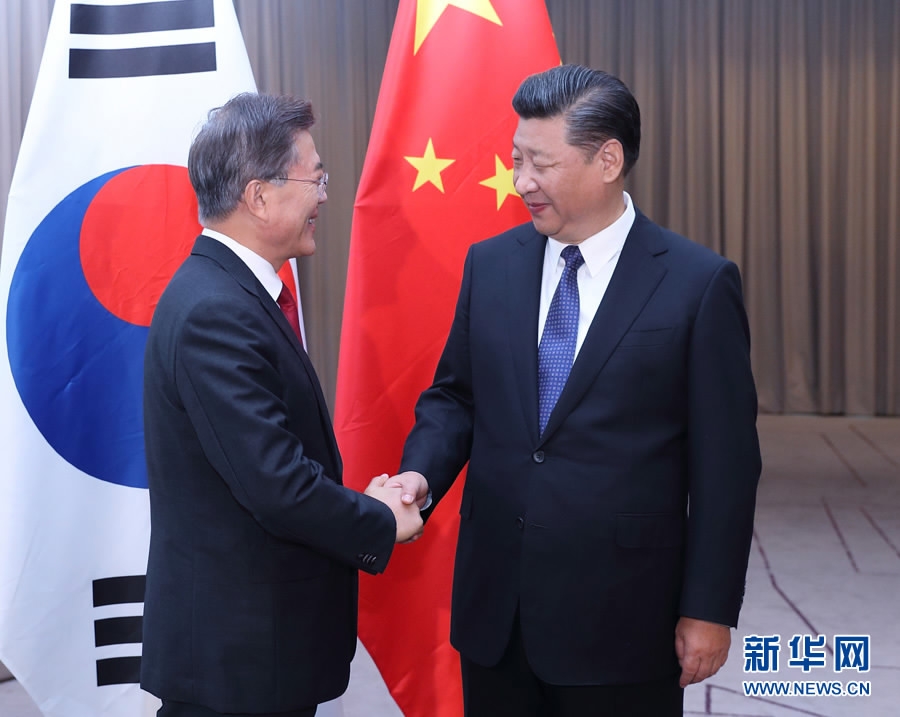
Chinese President Xi Jinping (R) meets his South Korean counterpart in Hamburg, Germany on July 6, 2017. /Xinhua Photo
Chinese President Xi Jinping (R) meets his South Korean counterpart in Hamburg, Germany on July 6, 2017. /Xinhua Photo
Once so near
Since the establishment of formal diplomatic ties on August 24, 1992, despite many ups and downs, the two close neighbors have deepened both diplomatic and economic ties.
In 2008, the two sides upgraded their relations to a “strategic cooperative partnership”, which meant the cooperation would go beyond the economy to many other areas including security.
Chinese President Xi Jinping's visit to South Korea in July 2014 sent a strong positive signal. A year later, then South Korean President Park Geun-hye visited Beijing for the Chinese military parade marking the 70th anniversary of the end of the Second World War.

South Korean President Park Geun-hye (front L) holds a welcoming ceremony for Chinese President Xi Jinping (front R) at the presidential Blue House before their talks in Seoul, South Korea, July 3, 2014. /Xinhua Photo
South Korean President Park Geun-hye (front L) holds a welcoming ceremony for Chinese President Xi Jinping (front R) at the presidential Blue House before their talks in Seoul, South Korea, July 3, 2014. /Xinhua Photo
Advancing economic ties is a win-win game for the two sides. Bilateral trade steadily increased from 1992's 6.4 billion US dollars to 211.39 billion US dollars, a 33-fold expansion. China has emerged as the largest export destination for South Korea while South Korea has become China's fourth-largest export market.
According to the Korean Tourism Organization, only about 152,000 people traveled back and forth between the two countries in 1993. By 2015, the number had risen 69-fold, to 10,428,000.
Yet so far
However, the deployment of the THAAD battery became a hurdle for bilateral relations, ending the "honeymoon" time between China and South Korea.
Seoul and Washington announced to deploy THAAD in South Korea in July 2016. They claimed the move is intended to defend against missiles from the Democratic People's Republic of Korea (DPRK).
China has repeatedly urged the halt of THAAD deployment, saying it severely undermined the regional strategic balance and harmed the strategic and security interests of countries in the region, including China.
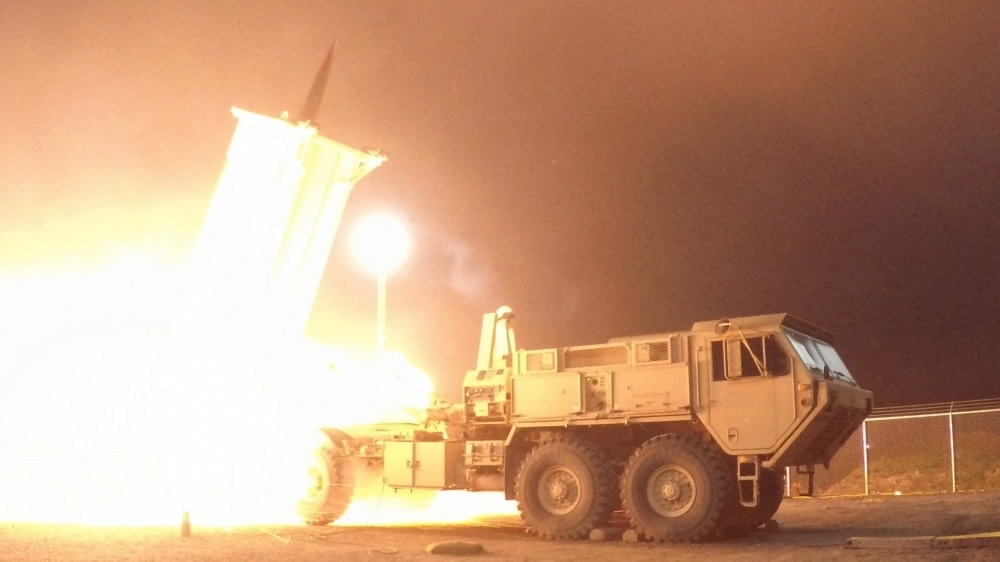
A Terminal High Altitude Area Defense (THAAD) interceptor launched from the Pacific Spaceport Complex Alaska in Kodiak, Alaska, during Flight Experiment THAAD (FET)-01 on July 30, 2017. /AFP Photo
A Terminal High Altitude Area Defense (THAAD) interceptor launched from the Pacific Spaceport Complex Alaska in Kodiak, Alaska, during Flight Experiment THAAD (FET)-01 on July 30, 2017. /AFP Photo
High-level communications between China and South Korea stalled for around one month after the deployment decisions were announced.
Economic ties were also hurt, especially in tourism. Since March of this year, the number of Chinese visitors to South Korea has decreased around 60 percent. For the South Korean side, tourists to China declined by more than 50 percent.
After the news broke that South Korean retail giant Lotte Group had agreed on a land swap allowing THAAD to be deployed on a piece of land owned by the company, the Chinese public launched a nationwide boycott of Lotte stores in China.
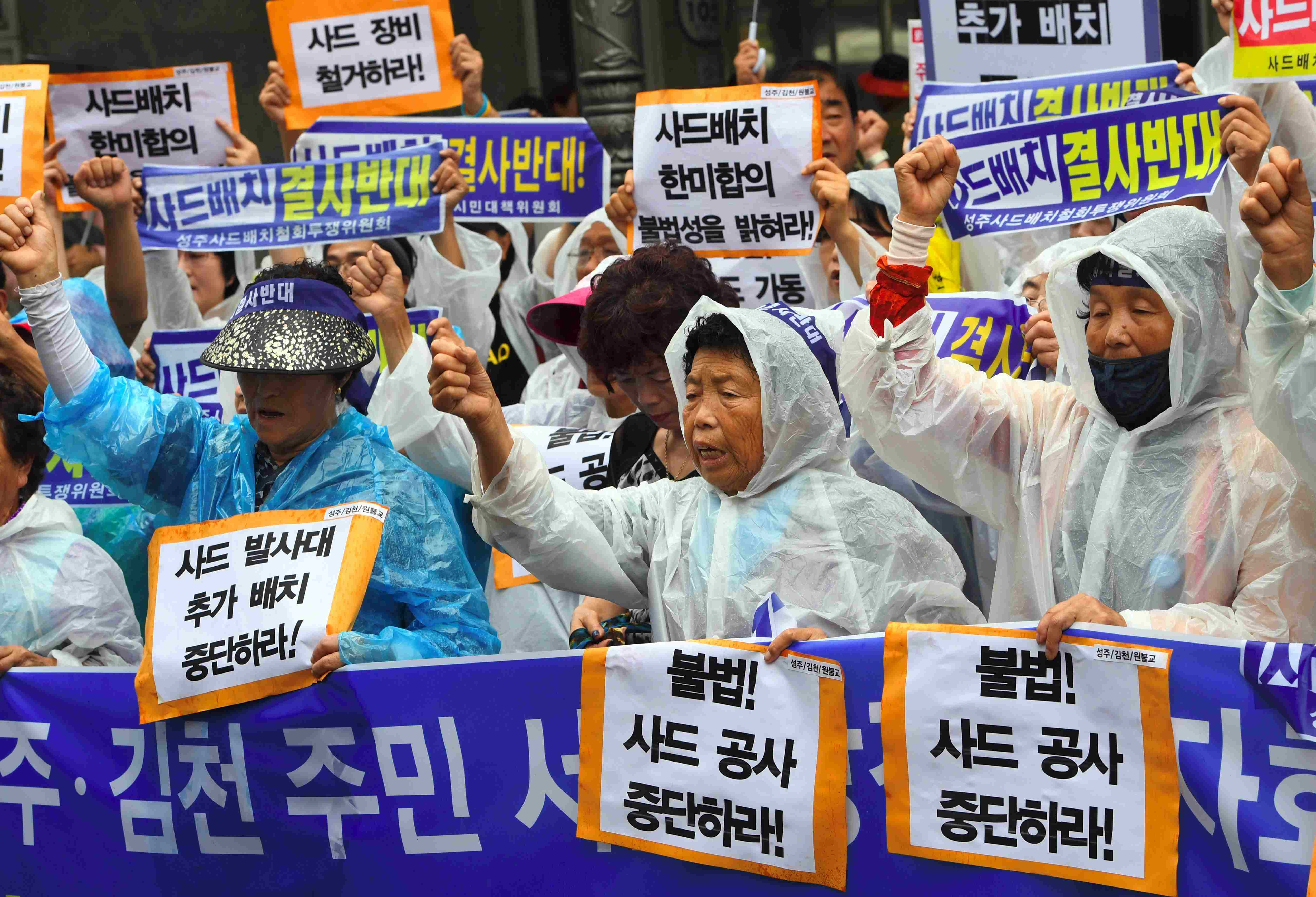
South Korean protesters shout slogans during a rally against the deployment of the THAAD system near the presidential Blue House in Seoul on July 31, 2017. /AFP Photo
South Korean protesters shout slogans during a rally against the deployment of the THAAD system near the presidential Blue House in Seoul on July 31, 2017. /AFP Photo
The Chinese Foreign Ministry said the protests against the group were an indication of Chinese people's stance towards South Korea's deployment of THAAD.
South Korean President Moon Jae-in tried to soothe tensions as he vowed to review the THAAD issue and later declared a suspension of the deployment due to environmental concerns in June.
However, hopes that the strains may be eased were dashed as the president announced that Seoul would deploy more THAAD units, after the DPRK conducted intercontinental ballistic missile (ICBM) tests twice in July.
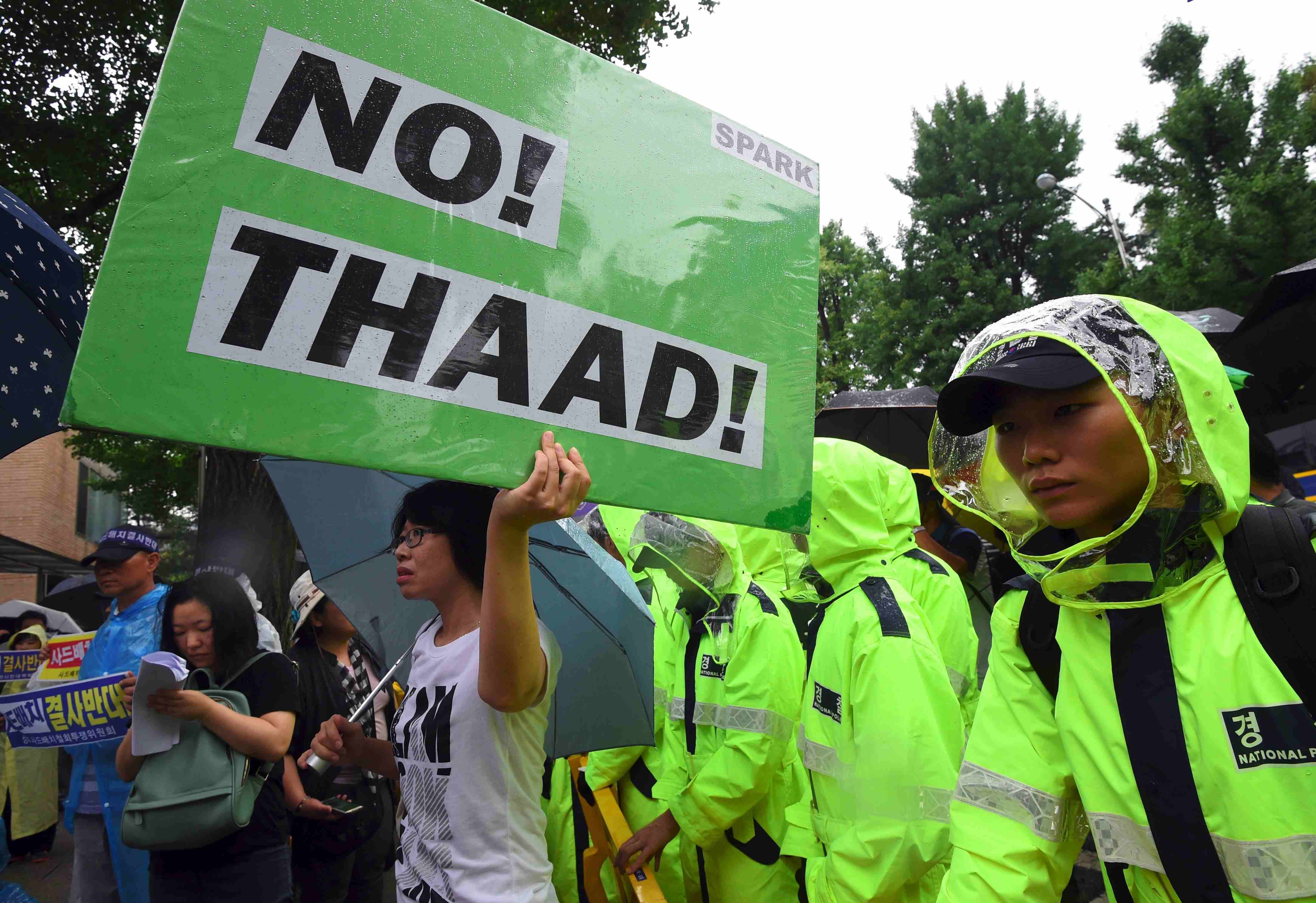
South Korean protesters shout slogans during a rally against the deployment of the THAAD system near the presidential Blue House in Seoul on July 31, 2017. /AFP Photo
South Korean protesters shout slogans during a rally against the deployment of the THAAD system near the presidential Blue House in Seoul on July 31, 2017. /AFP Photo
The two neighbors remain far from ironing out their differences on THAAD installation.
Concord voices
Though there have been twists and turns in the past 25 years, Beijing and Seoul are on the same boat in terms of major international affairs, especially on the Korean Peninsula situation and Japan's attitude towards history.
Beijing and Seoul both want the Korean Peninsula to be nuclear free and insist the issue should be solved via dialogue rather than war.
China has expressed on many occasions that Beijing's goal is to achieve the denuclearization of the Korean Peninsula and maintain peace and stability.
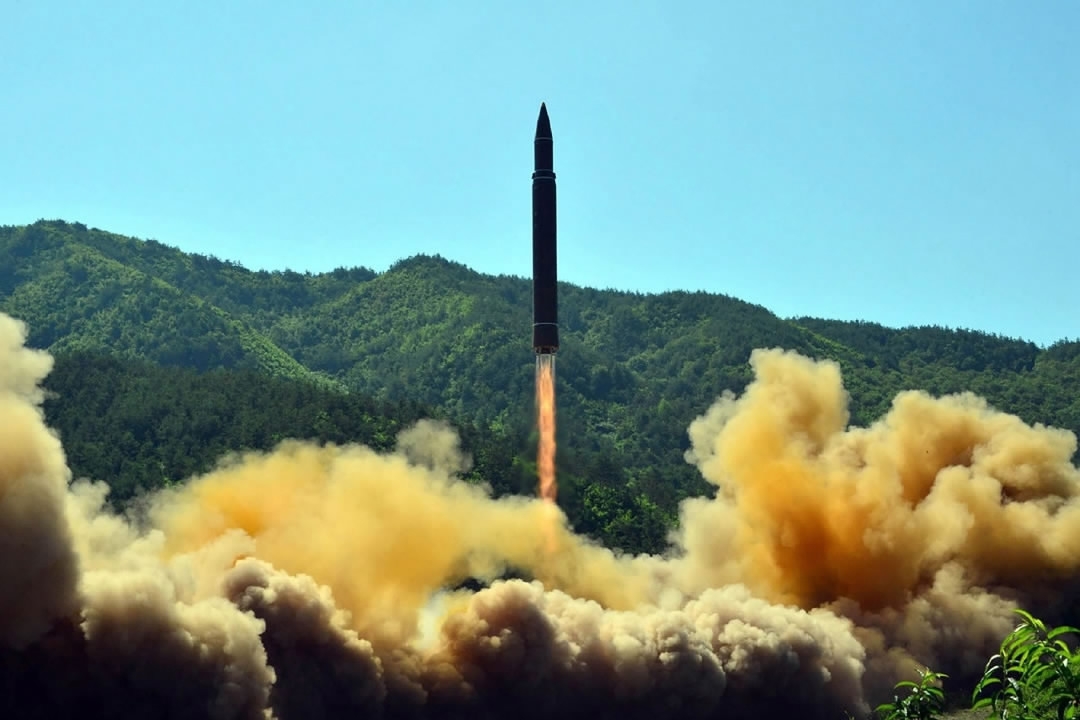
The DPRK successful tested an intercontinental ballistic missile at an undisclosed location on July 4, 2017. /VCG Photo
The DPRK successful tested an intercontinental ballistic missile at an undisclosed location on July 4, 2017. /VCG Photo
Amid fears in South Korea that US President Donald Trump's threats to unleash “fire and fury” on Pyongyang could lead to real fighting, President Moon said confidently that "there will not be a war again on the Korean Peninsula”.
With regards to Japan's wartime crimes, the two close neighbors have earnestly called on Tokyo to face up to and reflect upon its history of militarism, especially on the Japanese military’s brutal use of Korean and Chinese women as sex slaves during the Second World War and senior Japanese officials' visits to the notorious Yasukuni Shrine that houses WWII criminals.
Forge ahead with hopes
Though the deployment of THAAD has put a brake on the development of the strategic cooperative partnership, sound and steady development of Beijing-Seoul relations is an irresistible trend as long as the two sides "appropriately" deal with their differences, President Xi told his South Korean counterpart in a congratulatory phone call on Thursday.
On the special occasion of the 25th anniversary of the establishment of Beijing-Seoul diplomatic ties, China hopes the two parties can "take stock of the experiences and lessons, stay true to our original aspirations, cement mutual trust, properly handle differences and promote the sound and steady growth of bilateral relations", Chinese Foreign Ministry spokeswoman Hua Chunying said during a regular briefing on Wednesday.

